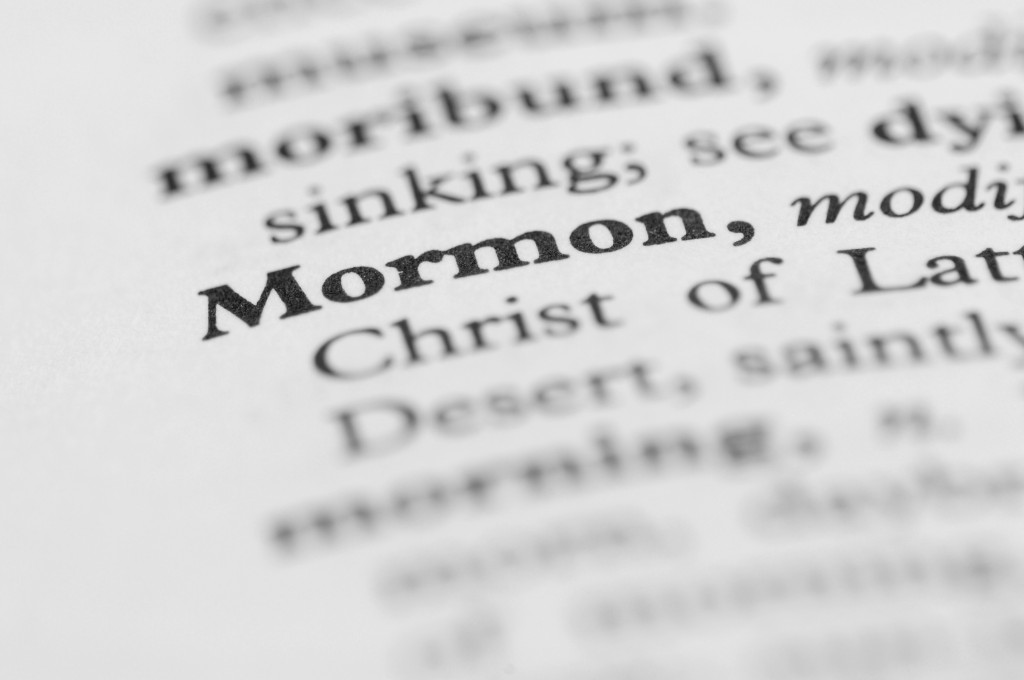The year I turned eight and was baptized a member of the LDS church, I began fasting on the first Sunday of each month. I still remember the first time I chose to skip two meals instead of one. I was a child. My body was small, my metabolism fast, and I became so ill that I had to leave church early. Dehydrated and drained of energy, I felt nauseated as I lay in bed that afternoon.
Since publishing Mormon Diaries, the story of my faith journey out of Mormonism, I often feel a similar queasiness. My desire to have people understand is often bigger than my body’s ability to deal with the stress of promoting a story that makes others uncomfortable. I’m a people pleaser. I don’t like rocking the boat. Unfortunately, religion is a sensitive and highly charged topic that necessitates a lot of boat rocking.
In the last few weeks I’ve become increasingly aware of the invisible wounds others have where Mormonism is concerned. I’ve had some of my devoted Mormon friends question my motives. I’ve had protestant friends that I attend church with express concern that I’m trying to infuse too much Mormonism into mainstream Christianity. And I’ve begun to see that where Mormonism is concerned, there is a lot of hurt.
The most loving, faithful Latter-day Saints I know view their religion as an integral part of their identity. They swaddle themselves in the words of apostles and prophets like a parent swaddles a newborn child, taking to heart Elder Oaks instructions about missionary work:
- Identify prayerfully your friends and neighbors who would be the most receptive to the gospel message.
- Introduce the identified individuals to the missionaries.
- Involve yourself in the teaching of the gospel, preferably in your home.
- Integrate your friends and any other new members into the Church by being attentive and helpful.
Through this simple, compact process we can increase the number of converts, and, more importantly, we can help the new converts achieve full fellowship. Increased member involvement is the only way to increase our current conversion rate.
Enter the potential converts-atheists, agnostics, mainline protestants, Baptists, heathens, spiritualists etc. who are perfectly happy with their present beliefs. Enter those who want friends that accept them, who want to sit at home on a Saturday afternoon and drink a cup of coffee without two young men knocking on their door in business suits.
“I have my own religion,” one such person says, touching the cross necklace hanging around her neck.
“But we have something amazing. It will change your life,” the missionaries explain. “Won’t you let us share it with you? You have the Bible, but we have another book. Don’t you want your family to be together . . . forever?”
The lady at the door points to a sign above the knocker. No soliciting, it reads. “Do you kids know what that means?”
One of the missionaries holds up a Book of Mormon. “It’s free,” he says. “We’re not selling anything.”
“Please go away,” she tells them, sighing.
Not long after she shuts the door and reenters her kitchen, she turns on the mini television sitting on the counter and puts some bread in the toaster oven. The refrigerator squeaks as she opens it. When the top of the jelly lid sticks to the pad of her thumb, she places the jar on the counter and wipes her hands on a paper towel.
Music comes from the television. Brandon Flowers is talking about his religious upbringing, the values and morals he learned from his mother, how they are a part of him.
There’s a pause.
The lady wearing the cross necklace opens the jelly, then reaches for a butter knife. “And I’m a Mormon” Mr. Flowers says in the background.
She thinks of her neighbor, Deb. The one who goes to church each Sunday for over three hours dressed in a crisp skirt and blouse, her five children walking like ducklings behind her.
Such a nice neighbor. Such a sweet, wonderful lady. Deb baked her an apple pie after she moved into the neighborhood. They went for a walk after Deb’s kids got on the bus. For half an hour her neighbor talked about Mormonism, how happy it makes her, how wonderful the doctrines are. Last week Deb invited her to meet the missionaries. Turning her down had been hard even though she wasn’t interested.
She resents feeling pressured and pushed. She resents that Deb wants to change her.
***
By writing a book about what it’s like to grow up Mormon, I knew I was writing a story that needed to be told. I also knew it was a tremendous risk. What I didn’t know was that the very things that make the book important are also what cause people to shrug it off. I believe there will come a time when the American public grows so tired of the “Mormon Moment” that they won’t bother to dig deeper. There will come a time when the public reaches its saturation point. And the Church of Jesus Christ of Latter-day Saints will suffer such a severe case of overexposure that the mere mention of it will strike a wariness in the hearts of the general public akin to what we feel when we see this woman’s face:
That time is fast approaching.
***
Sophia L. Stone is a seeker, learner, reader, and nature lover. You can find her memoir, Mormon Diaries, at both Amazon and B&N. If you’re on twitter, you can ask her any question about Mormonism @ask_a_mormon



Interesting points made in this article. I think too often in the church we use our “friendships” to try and convert people. I have seen so many times where people push their friends to convert, the friends dont convert, and then the friendship is over. Interesting how quickly we become un-christlike. I think overexposure/over saturation is in fact going to hurt the church and its membership efforts. Good posting
I appreciate this very much, and many who want to remain in the church feel this way–
the manipulations involved in missionary work are disturbing to many of us who continue to work hard to stay in the church–
just so you know that some of us who remain ‘active’ won’t look askance at those who leave for feeling this way at all–
how do we stay in? We focus on Jesus Christ–
and when we do that, we don’t really care anymore if our Christian neighbors join the church, because they, too, care about Jesus–
and . . . those who aren’t Christians? As followers of Christ we have nothing but open-hearted consideration for them–
Just wanted to say that I very much appreciate and agree with your comment. :)
I have come to believe that the pool of people who would be interested in being memebers is quite small, partly because most are content with their life, most people don’t want to take on the upheaval in their life that it would involve.
Mainly from the point of view of a progressive member, who is struggling to remein included in my ward of extreme conservatives, I don’t believe there are that many others out there who are extreme enough to feel like they would belong in our ward. Of course they don’t know that till later . We have 650 members on our roll and are lucky to get 150 to sacrament meeting, and a lot leave after that.
Perhaps if we could bring the church out of extreme conservatism into the modern world this would improve from 1 in a 1000.
The Saviour was not conservative, Joseph Smith was not, why is it now a requirement? I have the feeling that Pres Uchtdoef is trying to move our culture but it is slow and difficult.